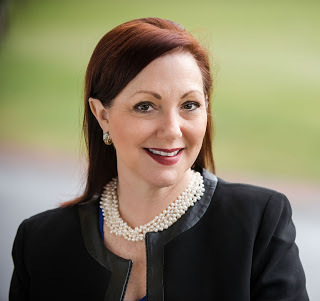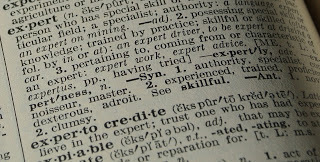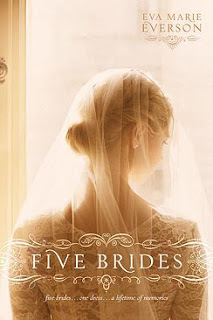Writing Like You Know What You’re Talking About
 Eva Marie EversonEdie here. Today I'm super excited to welcome our newest member of The Write Conversation blogging contributors. In addition to being a good friend, she's been my mentor and one of my biggest encouragers. Her contribution to the Christian publishing industry stretches from east to west. I know you'll be as elated as I am to welcome author, editor and writing mentor Eva Marie Everson!
Eva Marie EversonEdie here. Today I'm super excited to welcome our newest member of The Write Conversation blogging contributors. In addition to being a good friend, she's been my mentor and one of my biggest encouragers. Her contribution to the Christian publishing industry stretches from east to west. I know you'll be as elated as I am to welcome author, editor and writing mentor Eva Marie Everson!Writing Like You Know What You're Talking Aboutby Eva Marie Everson @EvaMarieEverson
Have you ever set a scene, a section of a book, or an entire novel somewhere you’ve never been? I have. Plenty of times.
In those days, AOL had the ability to search for other members by interest, where they lived, etc. So, I got busy. I sent out dozens of requests to those who live in NYC and—after explaining what I was doing and why—I asked, “Did you by chance live in NYC during the 1970s? Did you live in Hell’s Kitchen? If so, what can you tell me?”
 Within a few days, I’d interviewed approximately seven people who really knew the area, the era, and everything in between. I asked detailed questions, such as “what could you see? What could you hear? What could you smell?” So much so that after the book was released, I received email from folks who said, “I think you and I might have been neighbors in Hell’s Kitchen back in the 70s.” When I told them I had not been to New York, they were flabbergasted.
Within a few days, I’d interviewed approximately seven people who really knew the area, the era, and everything in between. I asked detailed questions, such as “what could you see? What could you hear? What could you smell?” So much so that after the book was released, I received email from folks who said, “I think you and I might have been neighbors in Hell’s Kitchen back in the 70s.” When I told them I had not been to New York, they were flabbergasted.As writers, we have the ability to use great levels of imagination, but we also have to draw from reality. A hundred years ago, a novelist could write about any location and feel safe—most people didn’t travel to the extent that we travel today.
Modern readers, however, will know if you are pulling their leg with your settings. Even if you “make up a town,” you have to know the area.
For example, my novel Five Brides, is set in Chicago in the early to mid-1950s. I’ve only been to the Windy City a few times in my life, I’ve seen a few movies set there, and so I was limited. Even if I’d grown up there, I wouldn’t know what the city was like in the early 1950s (I was born in the late 1950s). So, what was this novelist to do?
A big part of being in the downtown area of Chicago is the “Loop,” the central business district of Chicago. I wanted a feel for what it was like being in that “loop” and so I drew on my own experiences there, but mainly I asked those who live and work in the area.
 Something every visitor to or citizen of Chicago knows about it the “L,” which is short for “elevated.” The L is a transit system stretching nearly 103 miles in and around Chicago and her suburbs. It’s how folks get to work and home or simply travel to the city without driving their cars.
Something every visitor to or citizen of Chicago knows about it the “L,” which is short for “elevated.” The L is a transit system stretching nearly 103 miles in and around Chicago and her suburbs. It’s how folks get to work and home or simply travel to the city without driving their cars. I’ve never been on the L, so I went to YouTube and typed in “Riding the L in Chicago.” You’d be surprised the number of folks who video their experiences on the train (and thank goodness for it). By watching one video after the other (and a few several times in a row), I felt that I, too, had been on the “L” and was able to write scenes that depicted the sights, the sounds, the feel of being on the train.
Research is one of the most vitality important elements of a novelist, even when writing about the things you think you know.
“Know what you write,” we’ve often heard. But the truth is: “Write what you know.”
But to know it, you’ve got to read about it, you’ve got to talk about it, you’ve got to study it, you’ve got to research it, and sometimes you simply have to go there. You have to feel that you have become so much a part of it, you can write about it and no one will doubt you were ever there.
TWEETABLES
#Writing Like You Know What You're Talking About - wisdom from author @EvaMarieEverson (Click to Tweet)
Learn the specifics of #writing what you know from @EvaMarieEverson on @EdieMelson (Click to Tweet)
 Eva Marie is a multiple award-winning author and speaker. She is one of the original five Orlando Word Weavers critique group members, an international and national group made up of critique chapters. She served as the original president from 2000 to 2007 and is now president of Word Weavers International, Inc. Eva Marie served as a mentor for Jerry B. Jenkins Christian Writers Guild for several years and has taught at a number of writers conferences nationwide. During the 2010-2011 school year, Eva Marie served as an adjunct professor at Taylor University in Upland, Indiana. She describes it as one of the best times she ever had while working. Eva Marie also serves as director of Florida Christian Writers Conference (along with Mark Hancock) and the Education Consultant for SON Studios.
Eva Marie is a multiple award-winning author and speaker. She is one of the original five Orlando Word Weavers critique group members, an international and national group made up of critique chapters. She served as the original president from 2000 to 2007 and is now president of Word Weavers International, Inc. Eva Marie served as a mentor for Jerry B. Jenkins Christian Writers Guild for several years and has taught at a number of writers conferences nationwide. During the 2010-2011 school year, Eva Marie served as an adjunct professor at Taylor University in Upland, Indiana. She describes it as one of the best times she ever had while working. Eva Marie also serves as director of Florida Christian Writers Conference (along with Mark Hancock) and the Education Consultant for SON Studios.She is both a past and current student at Andersonville Theological Seminarywhere she plans to receive her Masters in Old Testament Theologysometime before her ninetieth birthday. Eva Marie and her husband make their home in Central Florida where they are owned by one very spoiled dog, a funky chicken, and two hearts-full of grandchildren.
*Carol Award Winner for The Potluck Club ** ICRS Gold Medallion Finalist *** Multiple awards, including 2012 Inspirational Readers Choice Award & Maggie Award (Chasing Sunsets), 2013 Maggie Award & 2013 Christy finalist for Waiting for Sunrise, 2014 AWSA Golden Scroll Award (Slow Moon Rising), 2015 AWSA Golden Scroll Award (The Road to Testament)
****CBA Bestseller List several months running and a finalist for Retailers Choice Awards, 2013
Published on November 24, 2015 01:00
No comments have been added yet.



